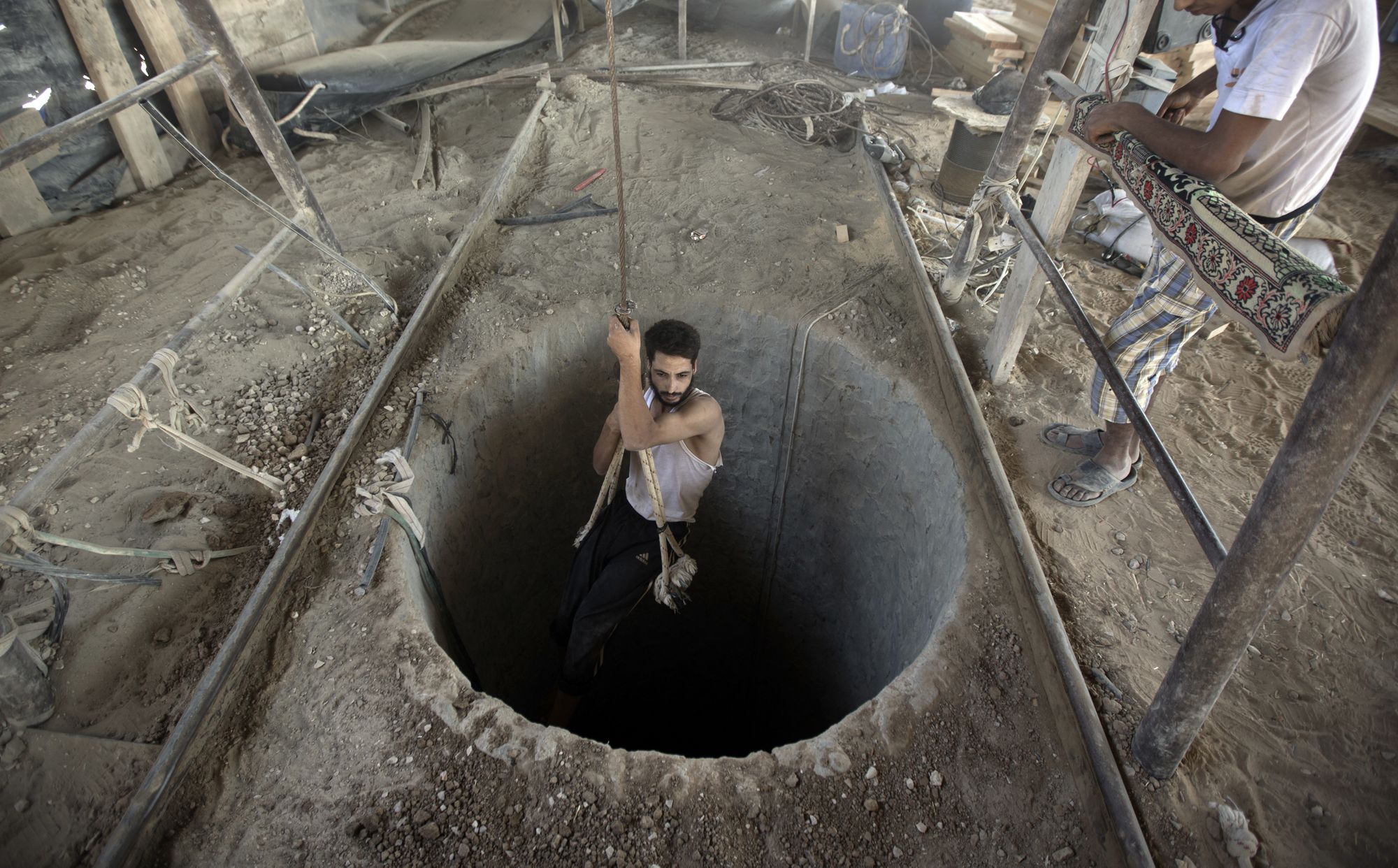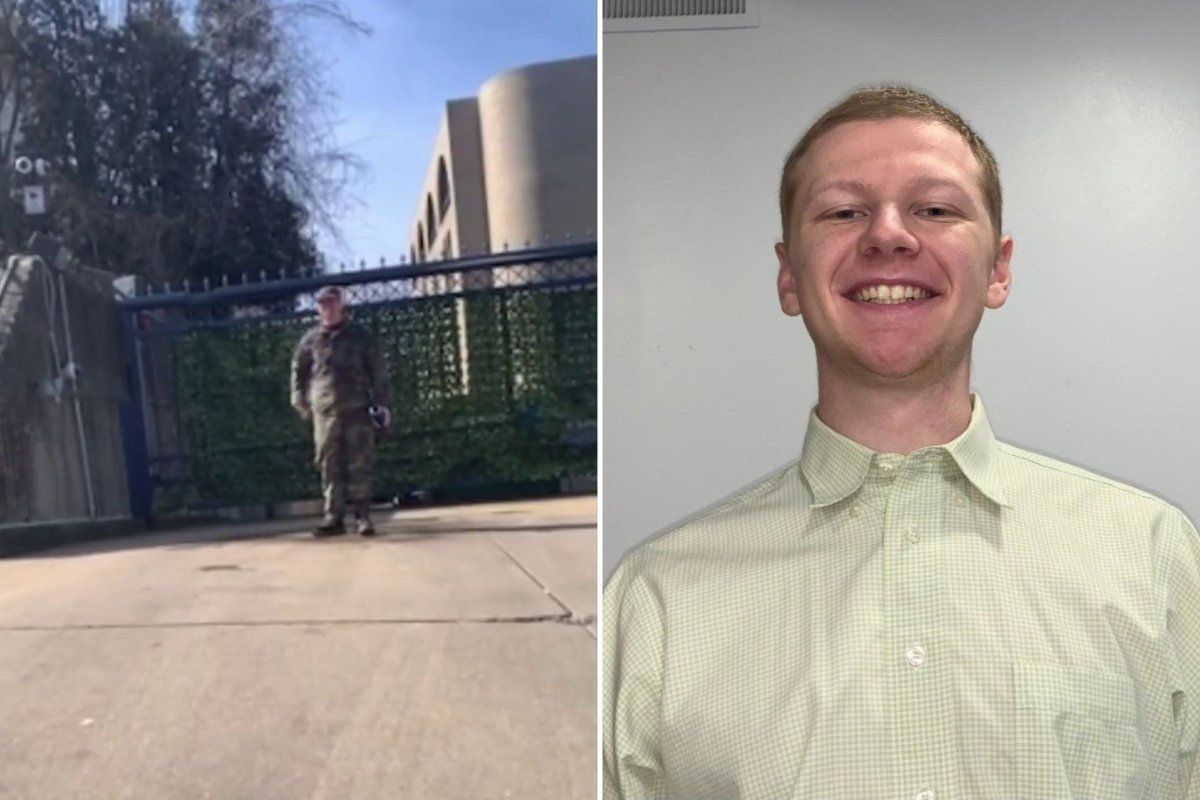In a bold and shocking act of protest, Aaron Bushnell, a 25-year-old active duty member of the US Air Force, set himself on fire outside the Israeli embassy in Washington DC. His self-immolation was a powerful statement against Israel's genocide in Gaza and the United States' complicity in supporting this violence. Bushnell's sacrifice has ignited discussions about US imperialism, solidarity with Palestine, and the urgent need for socialist transformation.
Bushnell's act of protest comes amid ongoing Israeli attacks on Gaza, which have killed thousands of Palestinians and displaced over two million. The US government has not only failed to condemn these atrocities but has actively supported Israel by supplying billions of dollars in arms and ammunition. The Israeli embassy in Washington has become a focal point for protests against this complicity, with activists demanding an immediate ceasefire and an end to US aid to Israel.
In a livestreamed video, Bushnell poured liquid on himself, shouted "Free Palestine," and set himself on fire. Despite emergency responders' attempts to extinguish the flames, Bushnell succumbed to his injuries. His final words and actions were a defiant rejection of US imperialism and a poignant reminder of the suffering endured by the Palestinian people.
Bushnell's protest reverberated around the world, sparking discussions about US militarism, imperialism, and solidarity with Palestine. Anti-imperialist and Palestine solidarity organizations praised Bushnell's courage and sacrifice, highlighting the growing awareness of the Palestinian struggle for justice and liberation.
Bushnell's self-immolation symbolizes a broader shift in consciousness within the United States, where people are increasingly questioning the country's imperialist policies and their role in perpetuating violence and oppression globally. His act of protest challenges the dominant narrative that justifies US support for Israel's actions and underscores the need for radical change.
As a US military member, Bushnell's protest raises important questions about soldiers' complicity in imperialist wars and occupations. His sacrifice forces us to confront the moral dilemmas faced by those serving in the military and the broader implications of US militarism. Veterans and active-duty soldiers have a crucial role to play in organizing against war and imperialism and advocating for a more just and equitable world.
Bushnell's self-immolation has inspired solidarity and resistance movements worldwide, with people from all walks of life joining the fight against imperialism and injustice. From Yemen to Palestine, activists are mobilizing to challenge US hegemony and stand in solidarity with oppressed peoples.
Aaron Bushnell's self-immolation was a courageous and revolutionary act against US imperialism and solidarity with Palestine. His sacrifice has reignited conversations about the Palestinian struggle for justice and the urgent need for socialist transformation. As we honor Bushnell's memory, let us continue the fight for a world free from imperialism, oppression, and injustice.

Update:
In a startling revelation, Aaron allegedly confided in a close friend about classified information regarding US military involvement in Gaza just hours before his dramatic self-immolation outside the Israeli Embassy in Washington, DC. According to the friend, Bushnell claimed to possess "top-secret clearance" and disclosed details about US troops participating in operations within Gaza's tunnels. The friend described Bushnell as visibly distressed and fearful, marking a stark departure from his usual demeanor. However, the veracity of Bushnell's claims remains unverified, and the White House has adamantly denied any US troops being deployed on the ground in Gaza. Despite this, Bushnell's alleged actions have sparked speculation about the implications of his revelations and the broader context of US foreign policy. His tragic act of protest has raised questions about the ethical and moral dilemmas faced by individuals within the military establishment, prompting reflection on the consequences of US military interventions abroad.

